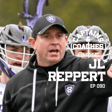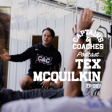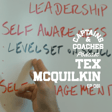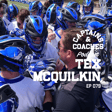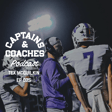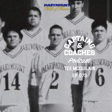
063 - Energy Is Not An Accident: Tools to Flip the Switch at Practice
Energy doesn't just happen. As coaches and leaders, we have the power to transform practice from a stress-filled obligation into a sanctuary where athletes leave the world behind and unlock their potential.
What You'll Discover:
- Energy Primers: spark engagement before practice even begins.
- Competitive Dynamics: challenges that tap into your athletes' natural drive.
- Psychological Anchors: intentional huddles that create flow state and team unity.
- The Mentor Mindset: How to be the thermostat, not the thermometer.
- Build, Don't Break: Reinforcing competence and confidence through purposeful intensity, not shame spirals.
This isn't about gimmicks or fake hype. It's about understanding that your athletes bring life to practice—relationships, stress, uncertainty—and as leaders, we can redirect that energy into focus, connection, and growth. The field becomes their sanctuary when we create the environment for transformation.
Take advantage of the weather.
Training - Old Bull Program - 7 Day Free Trial - https://bit.ly/old-bull-train
Education - Why They're Not Listening: Coaching the Modern Athlete - http://listen.captainsandcoaches.com
#CoachingCulture #PracticeMakesPurpose #TransformationalLeadership #Athletedevelopment #EnergyManagement #SportsCoaching #TeamCulture #LeadershipDevelopment #CoachingTips #MentorMindset #StrengthCoaching #SportsLeadership #CoachLife #TeamEnergy #PracticeOptimization #CoachingPhilosophy #AthleteMindset #PerformanceCoaching #CoachingTools #LeadershipInSports
